Current Affairs
Niger junta says France plotting to ‘intervene militarily’
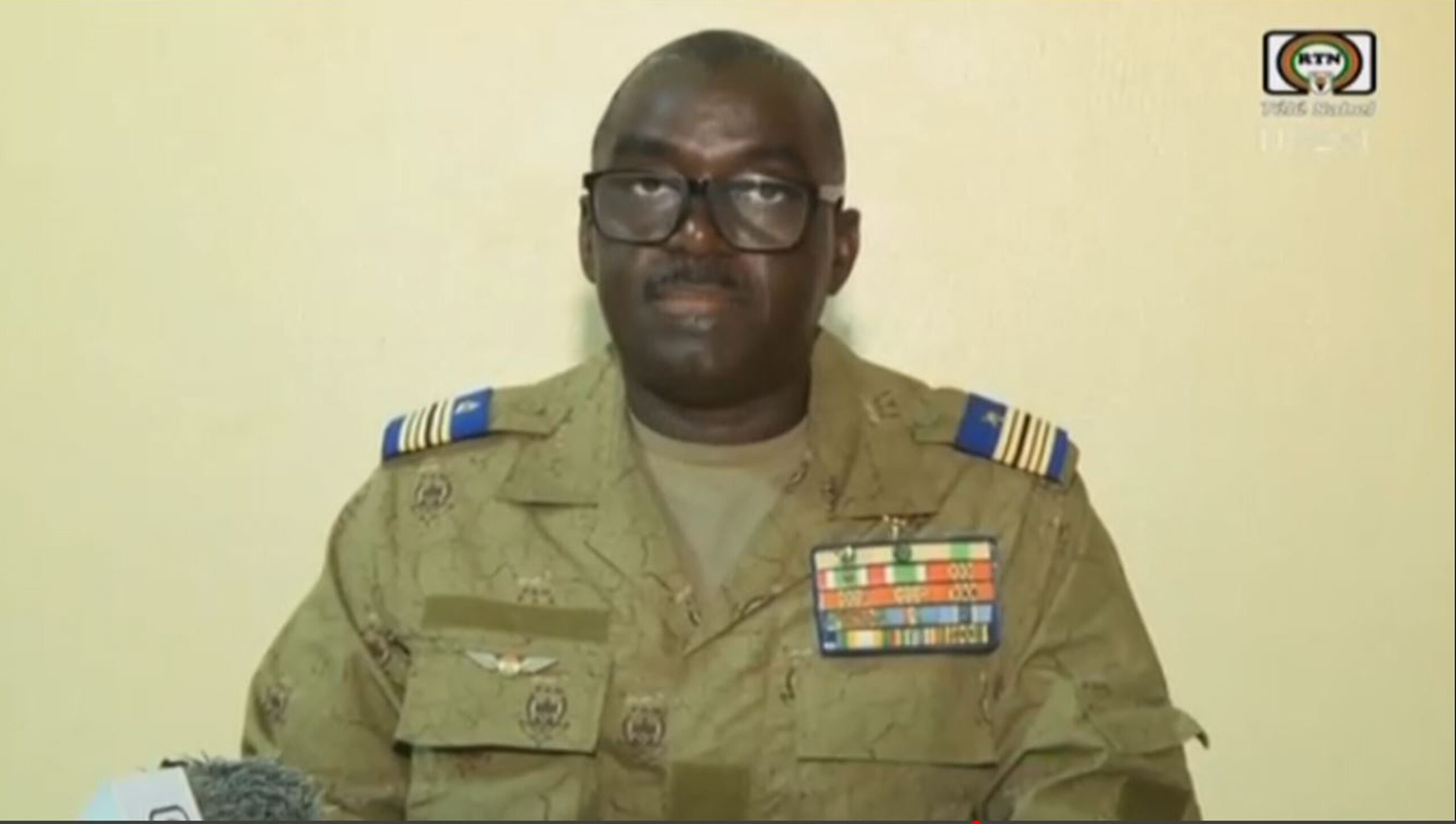
Niamey, Niger
Niger’s new junta on Monday accused France of seeking to “intervene militarily” to reinstate deposed President Mohamed Bazoum as tension mounted with the country’s former colonial power and neighbours.
Bazoum, a western ally whose election just over two years ago was a watershed in Niger’s troubled history, was toppled on July 26 by the elite Presidential Guard.
Guards chief General Abdourahamane Tiani declared himself leader — but his claim has been shunned internationally and the West African bloc ECOWAS has given him a week to hand back power.
On Sunday, French President Emmanuel Macron vowed “immediate and uncompromising” action if French citizens or interests were attacked after thousands rallied outside the French embassy.
Some of them tried to enter the compound but were dispersed by tear gas.
The junta on Monday accused France of plotting an intervention.
“In its search for ways and means to intervene militarily in Niger, France with the complicity of some Nigeriens, held a meeting with the chief of staff of the Nigerien National Guard to obtain the necessary political and military authorisation,” it said on national TV.
The putschists also said six people needed hospitalisation after the embassy security services fired tear gas against the rally.
On Sunday, the Economic Community of West African States (ECOWAS) sounded a tough warning.
The bloc demanded that Bazoum be reinstated within a week, failing which it would take “all measures” to restore constitutional order, which “may include the use of force.”
“No more time for us to send a warning signal… It’s time for action,” said ECOWAS chairman Bola Tinubu, president of Nigeria — Niger’s neighbour to the southeast and the regional superpower.
Russia called for the swift return of “the rule of law” and “restraint from all parties so that this doesn’t result in human casualties.”
– Crucial ally –
Niger became the third Sahel country in less than three years, following neighbours Mali and Burkina Faso, to be shaken by a military coup.
In all three nations, a jihadist insurgency strained fragile governments, stoked anger in the military and rained economic blows on some of the world’s poorest countries.
The overthrow of elected presidents has been accompanied by anti-French, pro-Russian demonstrations.
Protestors say France, the country’s traditional ally, has failed to shield them against the jihadists, whereas Russia would be a stronger ally.
In Mali, a 2020 putsch led to a bustup with France which last year withdrew its troops as the junta brought in Russian paramilitaries.
France also quit Burkina Faso after two coups last year brought in a junta that adopted a nationalist line.
The withdrawals prompted France to reconfigure its decade-long anti-jihadist strategy in the Sahel, concentrating its efforts in Niger, where it has 1,500 troops and a major air base near Niamey.
The latest coup, according to the putschists, was a response to “the degradation of the security situation” linked to the jihadist conflict, as well as corruption and economic woes.
International critics have ratcheted up pressure, targeting trade and development aid.
ECOWAS has suspended all commercial and financial transactions, while France, the European Union and the United States, which has about a thousand troops in Niger, have either cut off support or threatened to do so.
Germany suspended financial aid and development cooperation on Monday, and UN humanitarian operations have also been put on hold.
– Unstable nation –
The landlocked Sahel state has experienced four coups since independence from France in 1960 and numerous other attempts, including two previously against Bazoum.
The 62-year-old is a former interior minister and right-hand man to erstwhile president Mahamadou Issoufou, who voluntarily stepped down after two terms.
Their handover in April 2021, after elections won by Bazoum in a two-round contest against former president Mahamane Ousmane, marked Niger’s first peaceful transition of power since independence.
The arid landlocked state frequently ranks at the bottom of the UN’s Human Development Index, a benchmark of prosperity.
It is struggling with two jihadist campaigns — one in the southwest, which swept in from Mali in 2015, and the other in the southeast, involving jihadists from northeastern Nigeria.
© Agence France-Presse
Current Affairs
New survey points to coalition-led SA, but voter apathy a major factor
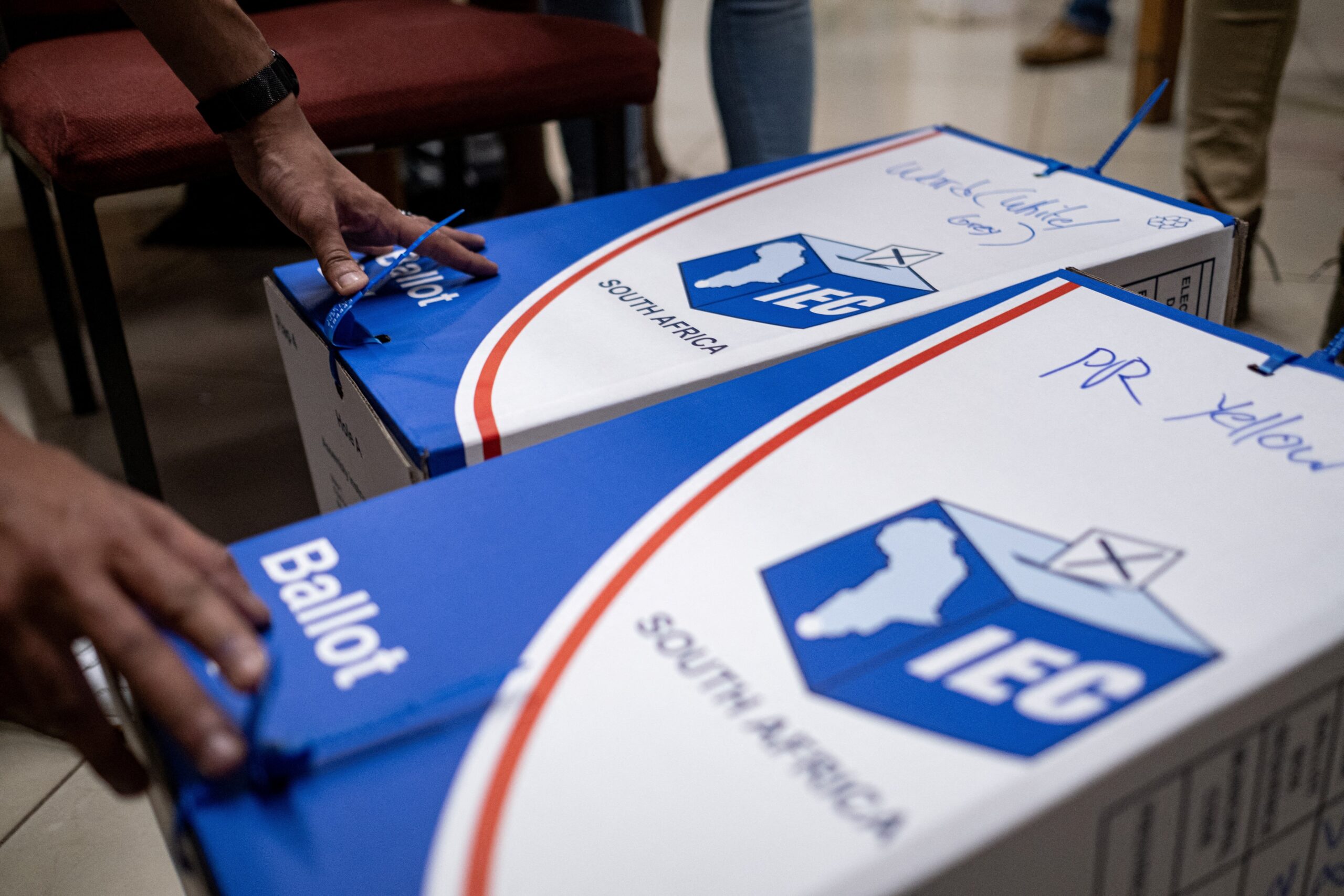
The results of an in-depth survey conducted by African Innovation Research SA (AIRSA) point to the country’s future being in the hands of coalitions and raise concerns about voter apathy, especially among the youth.
The initial sample comprised some 5 000 participants, of whom 46% confirmed they were either not interested in voting despite being registered or had not registered.
The majority of those surveyed by the independent research company based in Cape Town were in the 18–35 age group, a generation who are increasingly disillusioned with how the country is run.
The remaining 2 700 participants, who were interviewed from across a broad section of South Africa’s nine provinces, indicated that support for the ruling ANC is in decline, dipping below the 50% mark to 43% overall.
The ANC’s strongholds remain the Eastern Cape (61% of those surveyed), 58% in the Free State and 65% in Limpopo, where its challenger is the EFF at 23.7%.
In the country’s fourth-largest economy, Mpumalanga, the ANC leads with 52.3%, the EFF at 21.7% and the DA at 19.7%.
In the North West province, it’s a similar pattern, albeit reversed, with the ANC at 48.3%, the DA at 27.7% and the EFF at 20.0%, while in the Northern Cape, the ANC leads with 47.3%, followed by the DA with 24.3% and the EFF with 15.7%.
The country’s economic engine, Gauteng, is a key player in the power dynamics. Here, the ANC garnered 38.7%, but the EFF is growing its base to 19.3%, challenging the DA’s 20% of the province’s voters.
In the Western Cape, as expected, the DA holds onto a leading margin at 46.0%, with the ANC and EFF at 22.3% and 8.7% respectively. Gayton McKenzie’s Patriotic Alliance (PA) also features in the country’s southernmost province, making a notable showing at 5%.
While former president Jacob Zuma may have been barred from becoming a member of Parliament in the Constitutional Court this week, the new uMkhonto weSizwe Party (MKP) will play a pivotal role in KwaZulu-Natal. Results of the AIRSA survey show that while the ANC currently remains ahead with 28.7%, it’s an even race in the province with similar support for the IFP at 26.0% and MKP at 26.7%.
As experience dictates, the smaller parties will begin a series of bargaining tactics as to whose deck they end up in and call the shots.
At collectively accounting for around 20% of the upcoming vote, these potential coalition partners carry significant influence.
AIRSA also noted that voting in this sector is personality-driven as opposed to ideology.
The fragmentation of South Africa’s political landscape could also contribute to increasing dissatisfaction and disillusionment, particularly when linked to the country’s youth and increasing unemployment.
© IOL (Cape Times)
Current Affairs
Diddy assault video cements fall of hip-hop icon
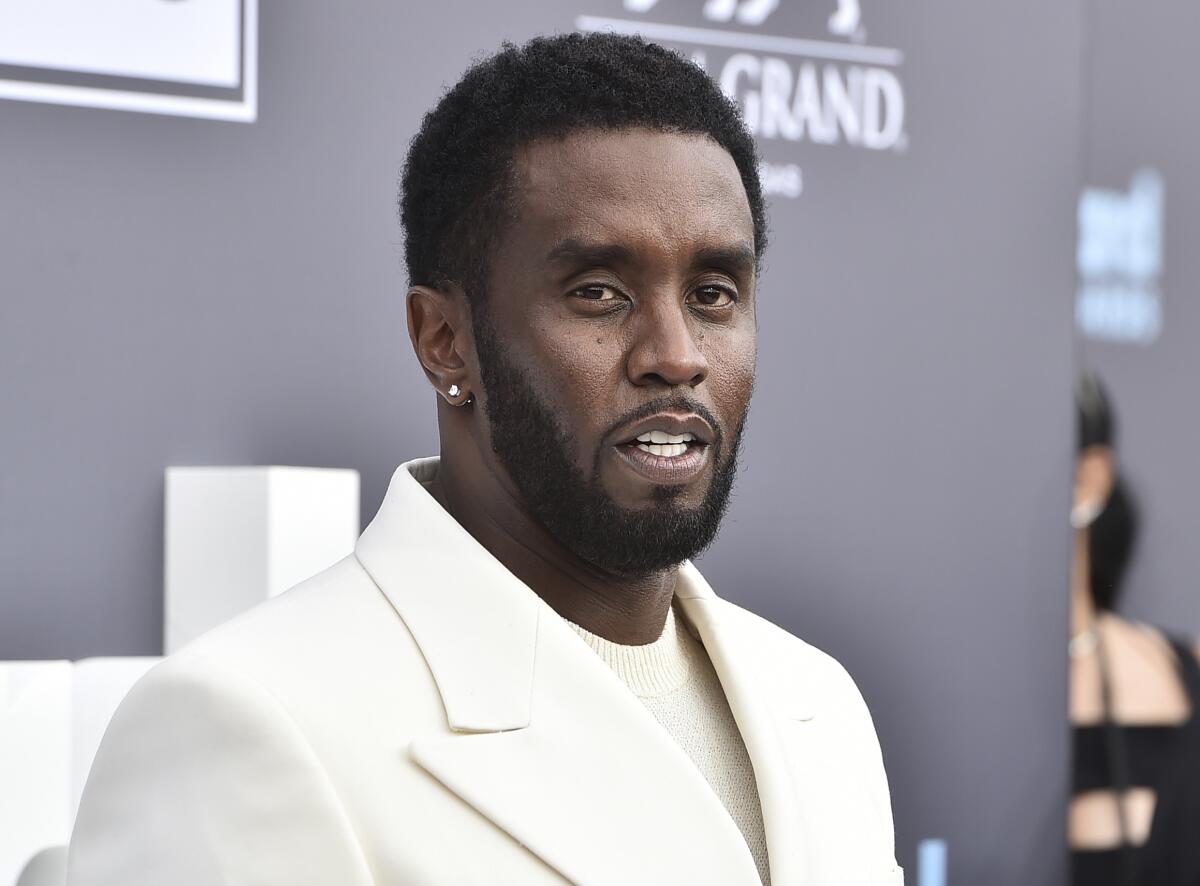
CCTV video footage confirmed what many people in the music industry knew was brewing: a moment of reckoning for one of the most influential hip-hop artists in history.
The clips of Sean “Diddy” Combs kicking his former girlfriend Cassie Ventura – as she lay motionless on the floor – cemented his downfall, despite his apology after the leak.
“I don’t see a path for him to come back from this,” said Amy DuBois Barnett, the former editor-in-chief of Ebony magazine, who has written about hip-hop culture.
Combs’ reputation in the industry had been “chequered for some time,” added Barnett. “Many people were aware of his pretty unbridled temper.”
Combs – formerly known as P Diddy, Puff Daddy or Puffy – is one of the best-selling and most acclaimed artists of all time, with three Grammy Awards and millions of record sales to his name.
For years, nothing really affected his rise to icon status as an artist, producer and businessman. There were negative stories in the industry, said Barnett, but much of it stayed out of the public eye.
Last November, Ms Ventura settled a lawsuit against Combs – in which she accused him of rape and sexual trafficking – for an undisclosed sum. But Combs’ lawyer said the settlement was “in no way an admission of wrongdoing”.
Celebrities continued to voice support for him, but that ended with the CCTV video obtained by CNN and published last week.
The assault shown in the footage is brutal. After kicking Ms Ventura like a football, Combs, wearing just a towel, is seen dragging her across the floor.
The video appears to be a compilation of surveillance footage angles dated 5 March 2016, which CNN said was filmed at the InterContinental Hotel in Century City, Los Angeles. In her lawsuit, Ms Ventura had described a March 2016 incident at that hotel, in which Combs allegedly attacked her.
A string of other lawsuits have since been brought against Combs for abuse, sexual misconduct and rape. The latest was filed on Tuesday by Crystal McKinney, a former model and winner of MTV’s 1998 Model Mission competition.
She claimed she was “drugged and sexually assaulted” in 2003 by Combs following a fashion event in New York. BBC News has contacted Diddy’s representatives for comment on the claims.
When the first lawsuits were filed, the rapper called the accusations “sickening” and said the alleged victims were looking for “a quick pay day”.
But the video of the assault on Ms Ventura undermined those denials.
Combs was silent for two days after its release, before posting an apology to Instagram, admitting it was him in the tape and calling his actions “inexcusable”.
“I was disgusted then when I did it,” he said, “and I’m disgusted now.”
“I went and I sought out professional help,” he continued. “I got into going to therapy, going to rehab. I had to ask God for his mercy and grace. I’m so sorry.”
Combs did not mention Cassie Ventura in his apology, and her lawyers hit back, saying: “Combs’ recent statement is more about himself than the many people he has hurt.”
The apology was “too little too late,” said Camron Dowlatshahi, an entertainment lawyer in Los Angeles. “It shows the short-sightedness of Diddy, thinking he’s not going to be held accountable and that he has enough money to take care of everything.
Barnett, who has written about misogyny in the rap industry, described the statement as “the most ill-advised apology ever”. She suggested it was from the “classic ‘famous man’ playbook: deny, deny, deny. Get caught. Apologise, then talk about going to therapy.”
“No-one’s taking it seriously, particularly because he previously accused Cassie and others of being gold-diggers. That really angered a lot of people in the music industry.”
In April, news helicopters on both the US east and west coasts filmed police raids on mansions linked to the rapper. They were part of an ongoing criminal investigation by law enforcement into sex trafficking.
The man who was idolised as a hip-hop legend has been lying low since then.
Family pictures with his daughters posted to Combs’ Instagram account are in stark contrast to the images of him carrying out a violent assault.
The Los Angeles District Attorney’s Office said on Friday that it would not be able to bring charges due to the statute of limitations for assault. So where does the CCTV video, and the ongoing investigation, leave his career?
In his music, Diddy has often relied on collaborations with other A-list stars. His last album featured Mary J Blige, The Weekend, 21 Savage, and John Legend. He is extremely unlikely to be able to recreate such productions now.
But whether there will be an effect on his vast number of listeners is less clear. Fitness company Peloton has banned his music from its workout playlists already, according to TMZ, but other companies are yet to comment.
R Kelly continues to get millions of monthly listeners on Spotify, despite convictions for child sexual abuse.
Meanwhile, Kanye West experienced a peak in his monthly listeners last year, despite being dropped by brands for expressing antisemitic views.
Those who passed by Diddy’s star on the Hollywood Walk of Fame this week reflected on what the video meant to the rapper’s fans.
“It’s career-ending. I don’t know how he’s going to come back from this,” said Mar Anthony, a Los Angeles local. “I was a fan when I was a kid, listening to Every Breath You Take (I’ll Be Missing You). But what he did and the music, they’re two different things.
“It’s the same thing with Michael Jackson,” he said, nodding towards another Walk of Fame star that lies not far away – in an apparent reference to allegations of child abuse made against that star.
Diddy “definitely deserves what is coming to him”, said Prince Laurenz Hamlin, who was visiting LA. “But he still has built a legacy in the music industry. I think people will have to separate the art from the artist.”
One woman, after snapping a photo of Combs’ star, simply muttered “predator” as she walked away.
It is unclear who is currently advising Sean Combs. The law firm that previously issued denials on his behalf has said it no longer represents him.
Despite the civil lawsuits there have been no criminal charges filed against him. But the ongoing police investigation will no doubt be weighing heavily on the rapper.
“The Department of Homeland Security was involved [in the raids],” said Mr Dowlatshahi. “Just that fact alone shows the severity of what’s going on here.”
© BBC News
Current Affairs
Iran’s supreme leader leads prayers at Raisi funeral
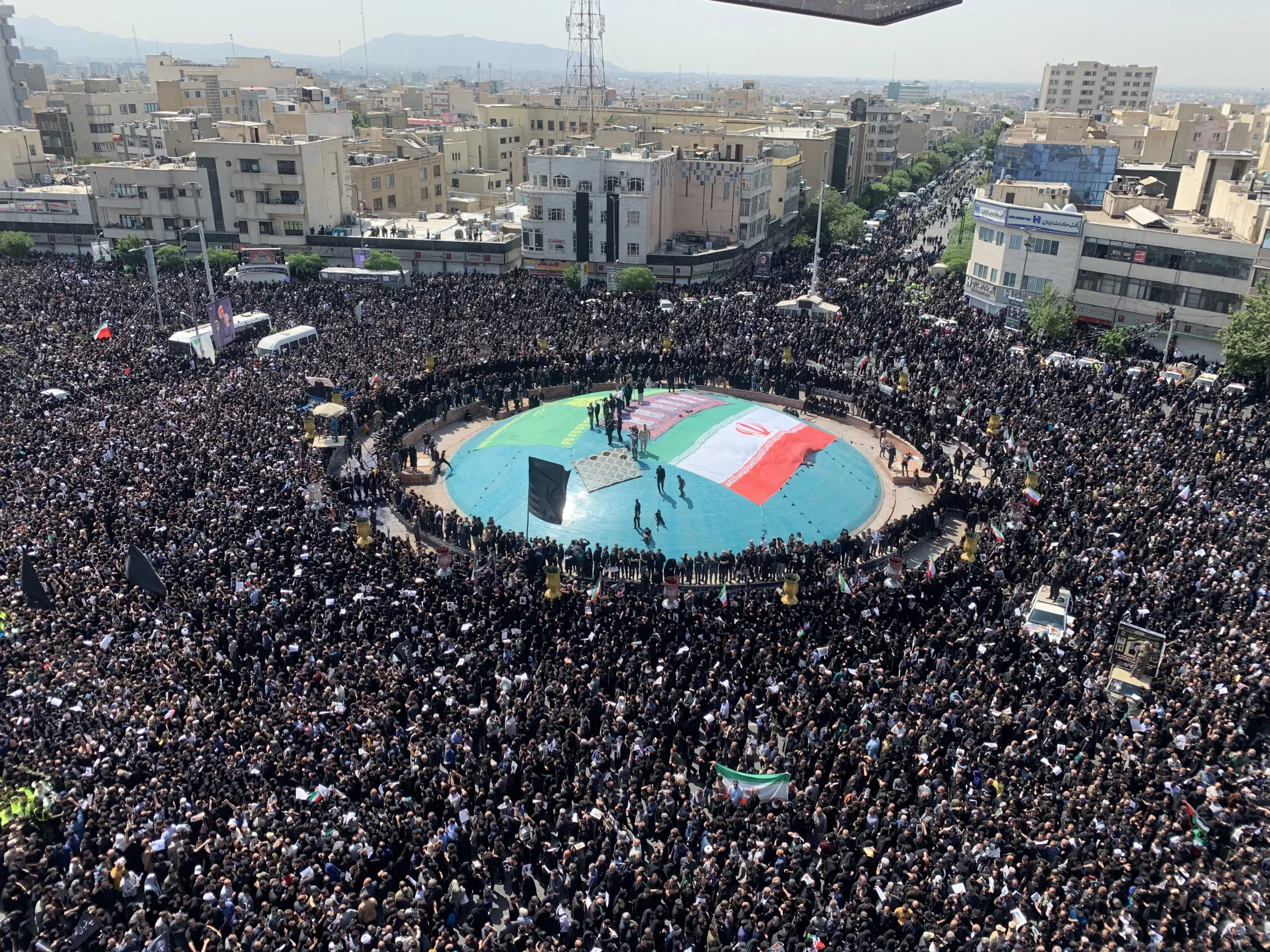
Iran’s supreme leader has presided over a funeral for the country’s late president, foreign minister and others killed in a helicopter crash on Sunday.
Ayatollah Ali Khamenei led prayers at Tehran University, where caskets carrying the dead were draped in Iranian flags.
President Ebrahim Raisi died alongside Foreign Minister Hossein Amir-Abdollahian and six others in a helicopter crash near the border with Azerbaijan.
Authorities had warned against demonstrations against the funeral procession and insults posted online.
“Oh Allah, we didn’t see anything but good from him,” Ayatollah Khamenei said in the standard prayer for the dead in Arabic.
Iran’s acting president, Mohammad Mokhber, stood nearby and openly wept during the service.
People then carried the coffins out on their shoulders, with chants of “Death to America” heard outside.
They loaded them onto a trailer for a procession through downtown Tehran to Azadi Square, where Raisi gave speeches in the past.
In attendance were top leaders of Iran’s paramilitary Revolutionary Guard, one of the country’s major power centres.
Also on hand was Ismail Haniyeh of Hamas, the militant group that Iran has armed and supported during the ongoing Israel-Hamas war.
Haniyeh is widely considered Hamas’s overall leader and has been a prominent member of the movement since 1980. The US Department of State designated him a terrorist in 2018.
“I come in the name of the Palestinian people, in the name of the resistance factions of Gaza…to express our condolences,” Haniyeh said.
He also described meeting Raisi in Tehran during Ramadan, the holy Muslim fasting month.
He said he heard the president say that “the Palestinian issue” remains the key one of the Muslim world, which “must fulfil their obligations to the Palestinians to liberate their land”.
He also claimed that Raisi called Hamas’ October 7 attack in Israel, which saw 1,200 people killed and 250 others taken hostage, an “earthquake in the heart of the Zionist entity”.
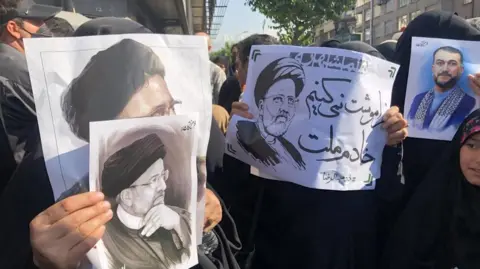
Also expected to attend services in Tehran were Pakistan’s Prime Minister Shehbaz Sharif and a delegation from the Taliban of Afghanistan, which included their Foreign Minister Amir Khan Mutaqqi.
Iran’s theocracy declared five days of mourning over Sunday’s crash, encouraging people to attend the public mourning sessions.
Typically, government employees and schoolchildren attend such events en masse, while others take part out of patriotism, curiosity or to witness historic events.
For Iran’s Shiite theocracy, mass demonstrations have been crucial to demonstrating the legitimacy of their leadership since millions thronged the streets of Tehran to welcome Grand Ayatollah Ruhollah Khomeini in 1979 during the Islamic Revolution, and also attended his funeral 10 years later.
An estimated one million turned out in 2020 for processions for the late Revolutionary Guard General Qasem Soleimani, who was killed in a US drone strike in Baghdad.
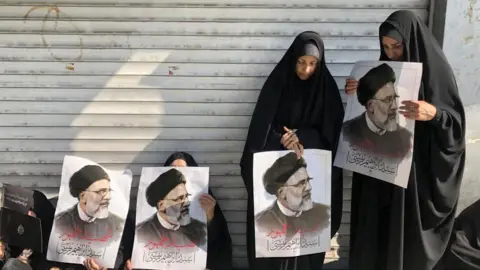
Across the capital, large banners were raised hailing Raisi as “the martyr of service”, while others bade “farewell to the servant of the disadvantaged”.
Some residents in Tehran received texts urging them to attend Wednesday’s ceremonies, the AFP news agency reported.
Footage carried by state TV showed streets filled with mourners, many of whom were carrying pictures of Raisi or the Iranian flag.
Funeral rites for the men began on Tuesday in the city of Tabriz and the Shiite clerical centre of Qom, where thousands of mourners attended ceremonies.
After Wednesday’s procession in the capital, Raisi’s remains will be moved to South Khorasan province, before being transferred to his home city of Mashhad in the northeast.
He will then be buried on Thursday evening in the city after funeral rites at the Imam Reza shrine.
Raisi, a hardline cleric, was a highly divisive figure in Iran. In the 1980s, he oversaw the execution of scores of opposition activists while working as a prosecutor.
He unleashed a brutal crackdown against demonstrators angered by the killing of 22-year-old Mahsa Amini in 2022. She died three days after she was detained by morality police in the capital for allegedly violating Iran’s strict rules requiring women to cover their hair with a hijab, or headscarf.
But his ultra-conservative outlook won favour with supporters of the regime, and Raisi was viewed as a possible successor to Ayatollah Khamenei.
© BBC News
Current Affairs
Shoprite to cooperate with police after Heidelberg man dies following alleged confinement in store cold room
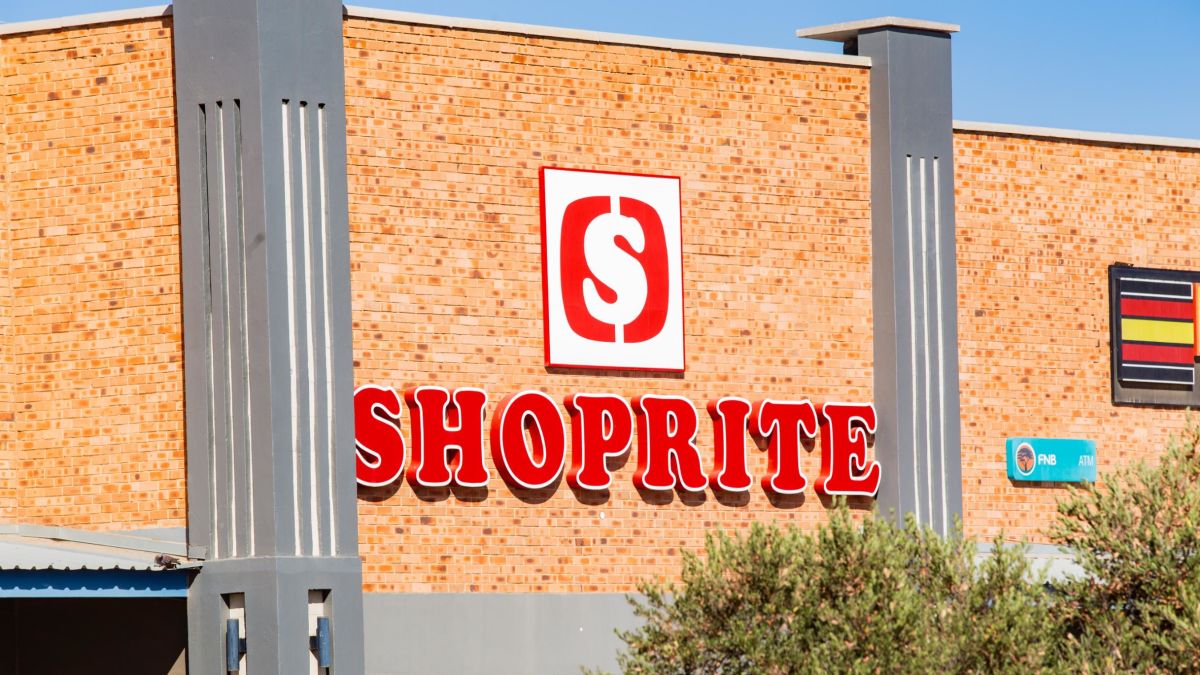
Without divulging any details regarding the allegations over the death of a Gauteng man, retailer Shoprite stated that they would cooperate with the South African Police Services (SAPS).
IOL initially reported that a 13-year-old boy who was accused of stealing a chocolate, had been locked in a cold store room, where he subsequently died.
However police have clarified that the victim is 33-years-old.
Gauteng police spokesperson Colonel Noxolo Kweza said Ratanda police have opened a case of assault common as well as an inquest docket.
“This follows an alleged incident where two men accused of shoplifting were locked at the back of the store.
“One of the men, aged 33, during closing time complained of stomach aches, paramedics were called and he was declared dead on the scene.”
It is alleged a 33-year-old man was accused of stealing a bar of chocolate from a Shoprite store in Ratanda in Heidelberg, south of Gauteng.
When approached for comment, the supermarket chain extended its condolences to the victim’s family following their loss.
“The allegations are seen in an extremely serious light and the necessary steps will be taken pending the outcome of a full investigation.
“We cannot comment on the details of the incident as it is a police matter, and the local South African Police Service (SAPS) should be contacted for more information.
“We always give our full cooperation and provide all available information to the SAPS to assist their investigation.”
On Monday, angry community members gathered outside the store demanding answers.
© IOL











You must be logged in to post a comment Login